Every variable that you declare under the VAR section of your Function Block is considered private.
There is no public or private keyword for variables in IEC 61131-3
Another thing you can do if you absolutely want to use public/private keywords is to define properties.
In general, the normal convention is to have read-only variables in the VAR_OUTPUT section of the Function Block and writable variables in the VAR_INPUT section of the Function Block. Again, the VAR section is considered a private section even though you could read this variables with the fbName.var notation or write them through their address (but this is a very bad programming style).
Twincat2 also allowed the variables in the VAR section to be written to with the fbName.var notation but this changed in Twincat3 in order to achieve better incapsulation.
To learn more about programming conventions in the IEC 61131-3 world, I recommend you to read the programming guidelines of the PLCOpen organization:
https://plcopen.org/guidelines/guidelines
